
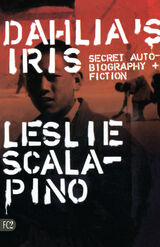
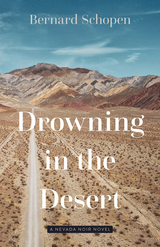
Norman “Fats” Rangle, an ex–deputy sheriff, operates a horse stabling and excursion business with his brother and sister-in-law on their family ranch in the small rural community of Blue Lake, a few hours outside of Las Vegas. But fate has other plans for him when, high on a southern Nevada mountain range, Fats discovers the wreckage of a plane that crashed two years earlier. Although he reports his find to the sheriff, he does not disclose that someone had already been to the crash site—evidence that Fats deliberately destroyed.
Soon, Fats is tracking back and forth between Las Vegas and Blue Lake in a search for a missing cousin, a briefcase full of cash, and, finally, for a killer. Along the way, Fats also begins to understand that he’s searching for himself and his place in a rapidly changing West.
Angry and alienated, Fats distrusts everyone he meets, from sleaze-merchants and political power brokers to two women: one he wants to believe in, a retired judge; and the other, a police sergeant, he can’t quite believe isn’t deceiving him. After all, in this Nevada, corruption is a given. Everybody lies. Much is uncertain—motives, loyalties, affections. But in Drowning in the Desert, one thing is certain: water is a precious resource that can both kill and be killed for.
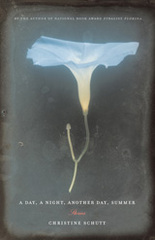
Schutt's indomitable, original talent is once again on full display in each of these deeply informed, intensely realized stories. Many of the narratives take place in a space as small as a house, where the doors are many and what is hidden behind these thin domestic barriers tends towards violence, abusive sex, and mental anguish. Schutt opens these doors in sudden, bold moments that also reveal how the characters are often hopeful, even optimistic. With a style that is at once sensual and spare, dreamlike and deliberate, she exposes the terrible intimacy of the rooms and corridors of our innermost lives.

Praise for Alan Shapiro: "Shapiro is a shrewd and sympathetic moralist. He never trivializes his subjects with high-minded flourishes or stylistic gimmicks."—J. D. McClatchy, New York Times Book Review
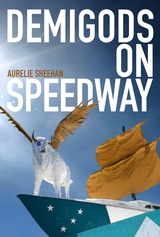
In the tradition of Joyce’s Dubliners, Demigods on Speedway is a portrait of a city that reflects the recession-era Southwest. Inspired by tales from Greek mythology, these gritty heroes and heroines struggle to find their place in the cosmos. Each of these linked stories develops the extremes of the modern psyche: an executive struggling to understand his wife’s illness even as he compulsively cheats on her, a teenage runaway whose attraction to her “twin” is bound to fail, an overweight boy vicariously experiencing true love through the tales of his trainer, a car-wash attendant with outsized dreams of Hollywood.
Characters with mythical-sounding names like Dagfinn and Zero plot their courses through a sky riddled with flawed constellations. Sheehan’s edgy language aptly reveals her characters as they lurch toward the next day’s irreverent beginning. As the characters’ lives overlap, their stories carry mythology out of the past and into a very modern dilemma: the cumulative sense that here is a city with its own demigods, individuals struggling to survive under siege while passionately seeking to make something immortal in their lives.
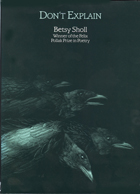
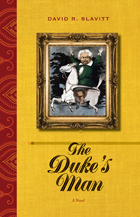
Focusing on one aspect of Dumas’ novel—the doomed love story of Bussy d’Amboise and Diana de Monsoreau—Slavitt excerpts key passages, which are extended and undercut by the narrator’s comments. The result is a radically abridged book with its own life and verve. The first of the quoted scenes, in which the names of Bussy’s assailants are replaced with those of French cheeses, sets the irreverent tone for all that follows. The book pokes fun at Dumas’ exclamatory style and flamboyant archaisms (“morbleu!” “pardieu!”), the implausibility of the swordfights, the unnecessary contortions of the political plot, the conventional passivity of the heroine, and the coyness of his love scenes. Residing somewhere between Nabokov’s Pale Fire and Quirk Books’ mash-ups (Pride and Prejudice and Zombies, etc.), The Duke’s Man’s blend of quotation, commentary, and fiction raises searching questions about realism and truth.
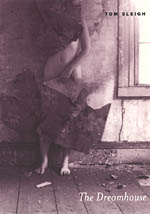
Praise for Tom Sleigh:
"Through sheer artistry, Tom Sleigh manages to write . . . in a transcendent way, and without appeal to the metaphysical assumptions transcendence usually requires. The Chain . . . floods darkness with brilliant craft."—Gray Jacobik, Boston Globe
"Tom Sleigh's second book of poems, Waking, is so fine one can hardly do justice to it in a review. . . . Sleigh is nearly as prodigal with his gifts as Yeats."—Liz Rosenberg, New York Times Book Review
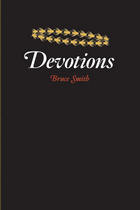
In the hands of Bruce Smith, devotions are momentary stops to listen to the motor of history. They are meditations and provocations. They are messages received from the chatter of the street and from transmissions as distant as Memphis and al-Mansur. Bulletins and interruptions come from brutal elsewheres and from the interior where music puts electrodes on the body to take an EKG. These poems visit high schools, laundromats, motels, films, and dreams in order to measure the American hunger and thirst. They are interested in the things we profess to hold most dear as well as what’s unspoken and unbidden. While we’re driving, while riding a bus, while receiving a call, while passing through an X-ray machine, the personal is intersected—sometimes violently, sometimes tenderly—with the hum and buzz of the culture. The culture, whether New York or Tuscaloosa, Seattle or Philadelphia, past or present, carries the burden of race and “someone’s idea of beauty.” The poems fluctuate between the two poles of “lullaby and homicide” before taking a vow to remain on earth, to look right and left, to wait and to witness.
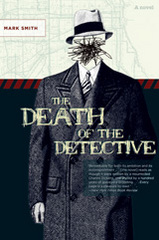
The Death of the Detective is a quest novel in the tradition of Don Quixote, Moby-Dick, and Dead Souls. During his frenetic and blood-soaked odyssey, Mark Smith's detective moves through the city on highways, boulevards, side streets, and alleys. He tracks "the death-maker" from a mansion in Lake Forest to the underbelly of the South Side, from a glass high-rise on the Gold Coast to a run-down tavern in the northwestern suburbs, and everywhere in between. In this New York Times best seller and finalist for the 1974 National Book Award, Smith takes hold of the reader and doesn't let go until the last page of his relentless journey into the dark recesses of the American soul.
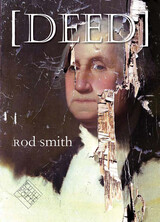
A deed is a governmental conveyance, a power asserted by the written, for, as William Carlos Williams wrote to Robert Creeley: “the government can never be more than the government of the words.” The question of ownership, of the words with which we define ourselves and each other, and of whose and what claims are legitimate is much at issue in Rod Smith’s Deed, a lyric, ambitious, rebellious work thoroughly grounded in the New American tradition of poets such as John Ashbery, Allen Ginsberg, and Charles Olson.
At the entrance to this collection stands an abode in the form of a long poem, “The Good House,” a comfortable, at times soothingly humorous place that is also a site of conflict. In “The Spider Poems,” the mythic spider, the maker of the alphabet, is a ?gure of fun and revelation. The third section of the book presents a series of shorter poems chosen for their stylistic variety. Deed ends with a nod to two masters, as Smith turns Jack Spicer’s “Homage to Creeley” into a double homage with “Homage to Homage to Creeley.” The gesture of choosing what one brings into one’s house, what one decides to love, closes the book.
Deed is about making as bequeathing, as celebration, and as impatience for the true democracy that is always yet to arrive. There is still joy inside and out, and by giving usDeed Rod Smith has captured that joy. In so doing he tells us where we as a people, a politik, and a poetic are going.
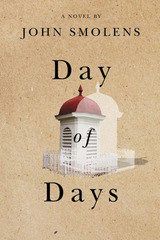

How does art mirror and shape our lives? Can it transcend the boundaries of time, wealth, and circumstance? Debra Spark—whose previous work the Washington Post described as "richly imaginative" and "real world magic"—explores these themes in her new novel Discipline. With a trio of important paintings missing, the book weaves together three narratives that span almost a century. From an inhumane boarding school in Maine in the late 1970s to a contemporary Boston art appraiser struggling with raising a teen to the long-lost love letters between a painter and his wife, Discipline is a propulsive literary mystery about family strife and devotion, ambition and authorship, and the abiding and mysterious power of art.
Inspired by the life and family of Walt Kuhn (the painter responsible for the 1913 Armory Show that introduced Americans to modernism) and the scandal-ridden Elan boarding school that was forced to shut down in 2011, this richly drawn, suspenseful novel shows Spark at her most masterful.
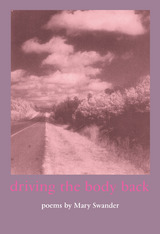
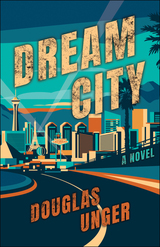
As the story progresses, C. D. comes to understand how his personal losses and the losses of his cohort of hard driving executives on the make—especially the tragic life of his work partner, Greta Olsson, the only woman to break through into their male dominated world—are a result of the make-believe environment he has helped to create, a world where representation replaces reality. Hoping to piece together his faltering marriage and family relationships, C. D. must find a new path as he struggles to hold onto his dreams.
In this fictionalized version of the city of glittering lights, author Douglas Unger pits the ideologies of marketing and consumerism in the casino economy of America against the erosion of individual and humane values that success in that world demands. Unger reveals the hard truth that Las Vegas, a blue-collar town considered by many to be “the most honest city,” can be a temple for self-deceptions, emblematic of a service economy that knows the price of everything and too often the value of little else. Dream City becomes both a love song and an elegy for Las Vegas that sets it apart from any other literary novel previously written about this global entertainment attraction that in so many ways represents postmodern America. Sooner or later, the challenge that faces everyone is to discover what matters most, and to learn how to bet on the better angels of our natures.
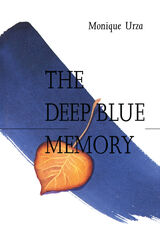
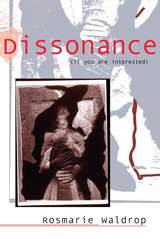
Incisive essays on modern poetry and translation by a noted poet, translator, and critic.
In this comprehensive collection of her essays, Waldrop addresses considerations central to her life’s work: typical genres and ways of countering the conventions of genre; how concrete poets have made syntax spatial rather than grammatical; and the move away from metaphor in poetry toward contiguity and metonymy. Three essays on translation struggle with the sources and targets of translation, of the degree of strangeness or foreignness a translator should allow into any English translation. Finally, other essays examine the two-way traffic between reading and writing, and Waldrop’s notion of reading as experience.
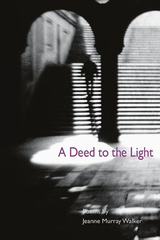
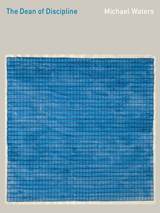

In Dogged Hearts Ellen Doré Watson demonstrates a capacious talent for invention and empathy and, with her incomparable linguistic brio, gives us an unforgettable look at how loss and disconnection can usher in chance-to-change reverie and unexpected veerings towards life.
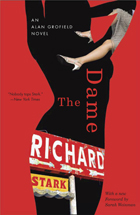
Donald E. Westlake is one of the greats of crime fiction. Under the pseudonym Richard Stark, he wrote twenty-four fast-paced, hardboiled novels featuring Parker, a shrewd career criminal with a talent for heists. Using the same nom de plume, Westlake also completed a separate series in the Parker universe, starring Alan Grofield, an occasional colleague of Parker. While he shares events and characters with several Parker novels, Grofield is less calculating and more hot-blooded than Parker; think fewer guns, more dames.
Not that there isn’t violence and adventure aplenty. . The Dame finds Grofield in Puerto Rico protecting a rich, demanding woman in her isolated jungle villa, and reluctantly assuming the role of detective. A rare Westlake take on a whodunit, The Dame features a cast of colorful characters and a suspenseful—and memorable—climax.
With a new foreword by Sarah Weinman that situates the Grofield series within Westlake’s work as a whole, this novel is an exciting addition to any crime fiction fan’s library.
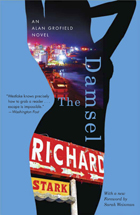
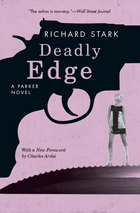
Deadly Edge bids a brutal adieu to the 1960s as Parker robs a rock concert, and the heist goes south. Soon Parker finds himself—and his woman, Claire—menaced by a pair of sadistic, strung-out killers who want anything but a Summer of Love. Parker has a score to settle while Claire’s armed with her first rifle—and they’re both ready to usher in the end of the Age of Aquarius.
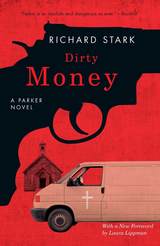
Parker’s got a new fence and a new plan to get the loot back from a botched job in Dirty Money, but a bounty hunter, the FBI, and the local cops are on his tail. Only his brains, his cool, and the help of his lone longtime dame, Claire, can keep him one step ahead of the cars and the guns.
Featuring new forewords by Chris Holm, Duane Swierczynski, and Laura Lippman—celebrated crime writers, all—these masterworks of noir are the capstone to an extraordinary literary run that will leave you craving more. Written over the course of fifty years, the Parker novels are pure artistry, adrenaline, and logic both brutal and brilliant. Join Parker on his jobs and read them all again or for the first time. But don’t talk to the law.
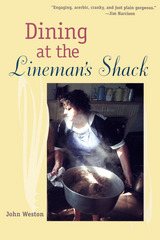
The place is Skull Valley in central Arizona, the time the 1930s. Taking food as his theme, Weston paints an instructive and often hilarious portrait of growing up, of rural family life under difficult circumstances, and of a remote Arizona community trying to hold body and soul together during tough times. His book recalls life in a lineman's shack, interlaced with "disquisitions on swamp life, rotting water, and the complex experience of finding enough to eat during the Great Depression."
Central to Weston's account is his mother Eloine, a valiant woman rearing a large brood in poverty with little help from her husband. Eloine cooks remarkably well—master of a small repertory from which she coaxes ideas surprising even to herself—and feeds her family on next to nothing. She is a woman whose first instinct is to cry out "Lord, what am I going to feed them" whenever visitors show up close to mealtime. Recalls Weston, "Her strength lay in a practical- and poverty-born sense that there must be more edible food in the world than most people realized," and he swears that six out of seven meals were from parts of four or five previous meals coming round again, like the buckets on a Ferris wheel.
Although Weston evokes a fond remembrance of a bygone era that moves from Depression-era Skull Valley to wartime Prescott, rest assured: food—its acquisition, its preparation, its wholehearted enjoyment—is the foundation of this book. "I did not have a deprived childhood, despite its slim pickings," writes Weston. "If I recall a boiling pig's head now and then, it is not to be read as some Jungian blip from Lord of the Flies but simply a recurring flicker of food-memory." Whether remembering his father's occasional deer poaching or his community's annual Goat Picnic, Weston laces his stories with actual recipes—even augmenting his instructions for roasted wild venison with tips for preparing jerky.
Dining at the Lineman's Shack teems with sparkling allusions, both literary and culinary, informed by Weston's lifetime of travels. Even his nagging memory of desperate boyhood efforts to trade his daily peanut-butter sandwich for bacon-and-egg, baloney, jelly, or most anything else is tempered by his acquaintance with "the insidious sa-teh sauce in Keo Sananikone's hole-in-the-wall restaurant on Kapahulu Street"—a peanut-butter-based delicacy for which he obligingly provides the ingredients (and which he promises will keep, refrigerated in a jar, for several weeks before baroque things begin to grow on it).
Through this tantalizing smorgasbord of memories, stories, and recipes, John Weston has fashioned a wholly captivating commentary on American culture, both in an earlier time and in our own. Dining at the Lineman's Shack is a book that will satisfy any reader's hunger for the unusual—and a book to savor, in every sense of the word.
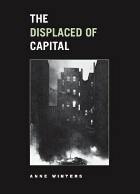
The long-awaited follow-up to The Key to the City—a finalist for the National Book Critics Circle Award in 1986—Anne Winters's The Displaced of Capital emanates a quiet and authoritative passion for social justice, embodying the voice of a subtle, sophisticated conscience.
The "displaced" in the book's title refers to the poor, the homeless, and the disenfranchised who populate New York, the city that serves at once as gritty backdrop, city of dreams, and urban nightmare. Winters also addresses the culturally, ethnically, and emotionally excluded and, in these politically sensitive poems, writes without sentimentality of a cityscape of tenements and immigrants, offering her poetry as a testament to the lives of have-nots. In the central poem, Winters witnesses the relationship between two women of disparate social classes whose friendship represents the poet's political convictions. With poems both powerful and musical, The Displaced of Capital marks Anne Winters's triumphant return and assures her standing as an essential New York poet.
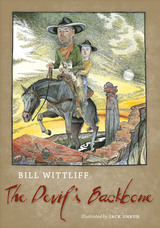
The last the boy Papa saw of his Momma, she was galloping away on her horse Precious in the saddle her father took from a dead Mexican officer after the Battle of San Jacinto, fleeing from his Daddy, Old Karl, a vicious, tight-fisted horse trader. Momma’s flight sets Papa on a relentless quest to find her that thrusts him and his scrappy little dog Fritz into adventures all across the wild and woolly Hill Country of Central Texas, down to Mexico, and even into the realm of the ghostly “Shimmery People.” In The Devil’s Backbone, master storyteller Bill Wittliff takes readers on an exciting journey through a rough 1880s frontier as full of colorful characters and unexpected turns of events as the great American quest novel Adventures of Huckleberry Finn.
Wittliff grew up listening to stories and memories like these in his own family, and in this imaginative novel, they come to vivid life, creating an engrossing story of a Texas Huck Finn that brims with folk wisdom and sly humor. A rogue’s gallery of characters thwart and aid Papa’s path—Old Karl, hell-bent on bringing the boy back to servitude on his farm, and Herman, Papa’s brother who’s got Old Karl’s horse-trading instincts and greed; Calley Pearsall, an enigmatic cowboy with “other Fish to Fry” who might be an outlaw or a trustworthy “o’Amigo”; o’Jeffey, a black seer who talks to the spirits but won’t tell Papa what she has divined about his Momma; Mister Pegleg, a three-legged coyote with whom Papa forms a poignant, nearly tragic friendship; the “Mexkins” Pepe and Peto and their father Old Crecencio, whose longing for his lost family is as strong as Papa’s; and blind Bird, a magical “blue baby” who can’t see with his eyes but who helps other people see what they hold in their hearts. Papa’s adventures draw him ever nearer to a mysterious cave that haunts his dreams—an actual cave that he discovers at last in the canyons of the Devil’s Backbone—but will he find Momma before Old Karl finds him?
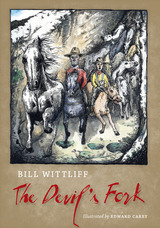
The Devil’s Fork opens with the boy Papa exclaiming, “They was gonna hang my o’Amigo Calley Pearsall out there in front a’the Alamo down in San Antoneya come Saturday Noon and if I was gonna stop it I better Light a Shuck and Get on with it. And I mean Right Now.” And so Papa and his sweetheart Annie Oster set off to rescue Calley, thereby launching themselves into another series of hair-raising adventures.
The Devil’s Fork concludes the enthralling journey through wild and woolly Central Texas in the 1880s that began in The Devil’s Backbone and The Devil’s Sinkhole. Papa springs Calley from jail, but their troubles are far from over. Framed for murder, the two amigos have to flee for their lives. Joining their flight this time is o’Johnny, the evil Sheriff Pugh’s disabled little brother, who has uncanny abilities. Escaping danger for a while, Papa and Calley try to start a new life as horse traders, only to find themselves branded as horse thieves when o’Johnny and a mysterious white ghost horse begin rescuing abused horses from their masters. Can Papa and Calley escape the noose and save all the horses that Johnny and the White Horse liberate? Or will their own hot tempers send them down the Devil’s Fork, from which no one ever returns?
Proving himself a master storyteller once again, Bill Wittliff spins a yarn as engrossing as the stories his own Papa told him long ago, stories that inspired The Devil’s Backbone, The Devil’s Sinkhole, and The Devil’s Fork.

When last we saw the boy Papa in The Devil’s Backbone, he had finally learned the fate of his missing Momma and his vicious daddy, Old Karl. But hardly has he concluded that quest before another one is upon him. Now a white-haired man with a hangman’s noose around his neck and death in his eye—o’Pelo Blanco—is coming. And he means to hang Papa.
In The Devil’s Sinkhole, the master storyteller Bill Wittliff takes us on another enthralling journey through wild and woolly Central Texas in the 1880s. When Papa and his o’amigo Calley Pearsall confront Pelo Blanco before he can ambush Papa, the encounter sets them on a pursuit with a promise of true love at the end, if only they can stay alive long enough for Calley to win the beautiful Pela Rosa, the captive/companion of Pelo Blanco. But before they can even hope to be united with Pela and Annie Oster, Papa’s plucky sweetheart, Papa and Calley have to defeat not only Pelo Blanco but also the evil, murdering Arlon Clavic and deliver Little Missey, the mysterious Wild Woman a’the Navidad, to the safe haven of the Choat farm. With dangers and emergencies around every bend, it’s a rough ride to the Devil’s Sinkhole, where this world and the next come together, bringing Papa and Calley, Pelo Blanco and Arlon to a climax that will leave readers clamoring for the next adventure.
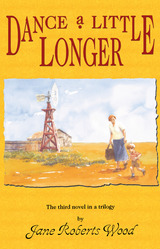

Since his death in Alabama in 1992, the work of American writer Richard Yates has enjoyed a renaissance, culminating in director Sam Mendes’s adaption of the novel Revolutionary Road (starring Leonardo DiCaprio and Kate Winslet). Dismembering the American Dream is the first book-length critical study of Yates’s fiction.
Kate Charlton-Jones argues that to read Yates’s tales of disordered lives is to uncover not misery, though the lives he describes are sad ones, but a profound, enriching, and humorous understanding of human weakness and vulnerability. Yates’s narratives absorb his readers so entirely, mirroring their own emotional highs and lows with such skill, that reading becomes recognition. Yates demonstrates his ability to tease powerful human drama out of the most ordinary, quotidian moments. At the same time, Yates’s fiction displays an object lesson in the art of fine prose writing, so it is no surprise that many early fans of Yates were also established writers.
Charlton-Jones explores how Yates extends the realist form and investigates three main recurring themes of his fiction: observations about performative behavior, which are at the heart of all his fictions; his conception of the writer’s role in society; and how he envisages the development of social and sexual relationships. Furthermore, Charlton-Jones illustrates how Yates incorporates some of the concerns and methods of postmodernist writers but how, nevertheless, he resists their ontological challenges.
Drawing on the author’s personal papers and with a foreword by DeWitt Henry and an afterword by Richard Yates’s daughter Monica, Dismembering the American Dream provides an extended critical examination of the often neglected but important work of this gifted and accomplished author.
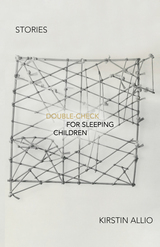
The winner of the FC2 Catherine L. Doctorow Innovative Fiction Prize, Double-Check for Sleeping Children is the newest work by award-winning writer Kirstin Allio
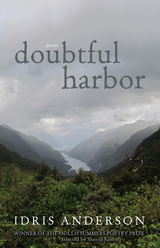
In Doubtful Harbor, Idris Anderson turns wandering into art. From large landscapes to the minutest details, she seeks with each poem to convey the world more clearly, acutely, and exquisitely. As she meditates on indelible moments with intimate others, friends, and strangers, she teases from these encounters their elusive connections and disconnections. As Sherod Santos wrote when selecting the book for the Hollis Summers Poetry Prize, “These are not the journeys of a tourist, but of a wandering solitaire whose purpose is not to maintain a travelogue, but to lose herself in the otherness of her surroundings.”
Doubt is itself a driving force here, an engine of both questing and questioning. As exact as Anderson’s eye is, her poems draw energy from ambiguity as she renders interior and exterior landscapes—foreign and domestic, lovely and littered, familiar and strange.
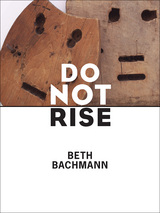
—Robert Hass


Set in a Tel Aviv café in the moments before a suicide bomber enters, Iris Bahr’s 2008 Lucille Lortel Award–winning DAI (enough) courageously speaks to tragic current events. Bahr plays eleven different characters who span the ideological and class spectrum of Israeli society, including a Zionist kibbutznik, an evangelical from America funding an Armageddon fantasy, a West Bank settler, a snooty expat living in Long Island, and a Palestinian professor trying to keep her son from taking the path of extremism. Thanks to the emotional depth and honesty with which Bahr endows these characters and their individual stories, a complex portrait of the Israeli-Palestinian conflict emerges. Alternately very funny and tragic, DAI (enough) is a brave attempt to humanize the headlines.
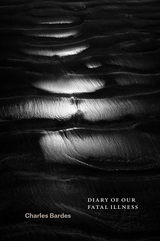
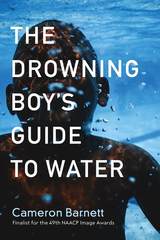
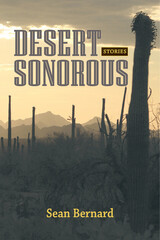
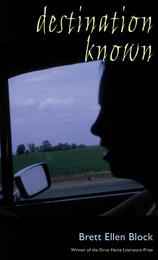
Selected by C. Michael Curtis
The characters in Brett Ellen Block’s debut collection of short stories may know their destinations, but they don’t always rush to them. From a runaway on an ice cream truck to a down-and-out retiree in a porn shop, they struggle to face both their pasts and their futures.
In a series of tightly focused and deftly drawn vignettes, Block explores the detours, potholes, and speed bumps along the road of life. These are stories about people at loose ends in their lives, coming to the realization that they can’t always sit back and enjoy the ride. Whether they’re committing petty larceny, moping their way through the winding streets and canals of Venice, or seeking to escape North Carolina’s Outer Banks, Block’s characters are learning to get behind the wheel and take control.
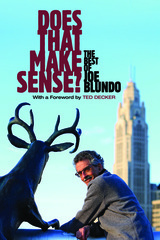

Finalist, Stafford/Hall Award for Poetry, Oregon Book Awards

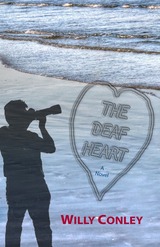
At the hospital, Max has to contend with hearing doctors, nurses, scientists, and teachers. While struggling through the rigors of his residency and running into bad luck in meeting women, Max discovers an ally in his hearing housemate Zag, a fellow resident who is also vying for certification. Toward the end of his residency, Max meets Maddy, a Deaf woman who helps bring balance to his life.
Author Willy Conley’s stories, some humorous, some poignant, reveal Max’s struggles and triumphs as he attempts to succeed in the hearing world while at the same time navigating the multicultural and linguistic diversity within the Deaf world.
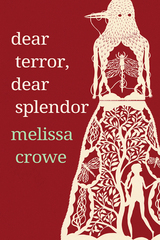
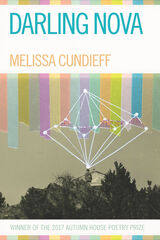

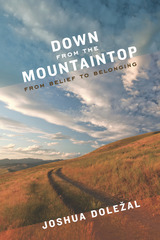
For more than a decade, Doležal taught in the Midwest throughout the school year but returned to Montana and Idaho in the summers to work as a firefighter and wilderness ranger. He reveled in the life of the body and the purifying effects of isolation and nature, believing he had found transcendence. Yet his summers tied him even more to the mountain landscape, fueling his sense of exile on the plains.
It took falling in love, marrying, and starting a family in Iowa to allow Doležal to fully examine his desire for a spiritual mountaintop from which to view the world. In doing so, he undergoes a fundamental redefinition of the nature of home and belonging. He learns to accept the plains on their own terms, moving from condemnation to acceptance and from isolation to community. Coming down from the mountaintop means opening himself to relationships, grounding himself as a husband, father, and gardener who learns that where things grow, the grower also takes root.
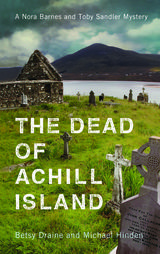
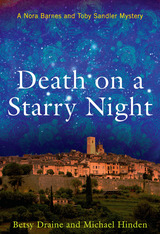
During a week of academic squabbling, dining, romance, and suspense, the quirky conference members, one by one, fall under police suspicion and the amused gaze of Nora’s husband, Toby Sandler. But someone wants to stop Nora and Toby’s amateur sleuthing, and what happens next is no joke.
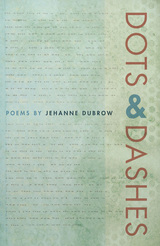
As in the poet’s earlier collection, Stateside, the poems in Dots & Dashes are explicitly feminist, exploring the experiences of women whose husbands are deployed. But, while Stateside looked to masculine stories of war, Dots & Dashes incorporates the views and voices of female poets who have written about combat. Looking to Sappho and Emily Dickinson, the poet considers how the act of writing allows her autonomy and agency rarely granted to military spouses, even in the twenty-first century. Dubrow catalogs the domestic life of a military spouse, illustrating what it is like to live in a tightly constructed world of rules and regulations, ceremony and tradition, where “every sacrifice already / knows its place.”
Navigating the rough seas of marriage alongside questions about how civilians and those in the military can learn to communicate with one another, Dubrow argues for compassion and empathy on both sides. In this timely collection, Dubrow offers the hope that if we can break apart our preconceptions and stereotypes, we can find what connects all of us.
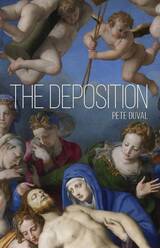
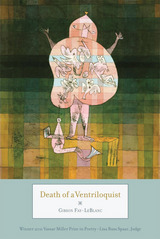
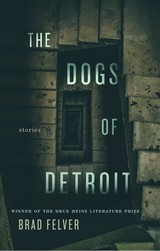
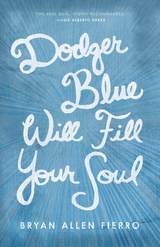
In Dodger Blue Will Fill Your Soul, Bryan Allen Fierro brings to life the people and places that form the fragile heart of the East Los Angeles community. In the title story, a father’s love of Dodger baseball is matched only by the disconnect he must bridge with his young son. In another story, a young widower remembers his wedding day with his father-in-law. The boys and men in this collection challenge masculine stereotypes, while the girls and women defy gender roles. Hope and faith in their own community defines the characters, and propels them toward an awareness of their own personal responsibility to themselves and to their families, even as they eschew those closest to them in pursuit of a different future.
Dodger Blue Will Fill Your Soul is a tour de force—the first collection of an authentic new voice examining community with humor, hope, and brutal honesty.
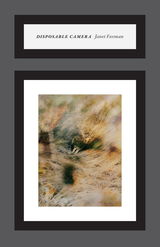
Although Disposable Camera is Janet Foxman’s first book-length collection, one would not know it given the wry sophistication of the poems found within. The notion of the disposable camera permeates the entire book, where Foxman considers the instabilities in even our deepest attachments. Here gulfs expand, for instance, between twins, between the musician and his instrument, between the recluse and his inconsolable solitude. Whether a hermit; a twin; a filmgoer utterly taken with Triumph of the Will; or Masaccio, just after he’s painted the Expulsion—the poems’ speakers share a nagging anxiety that satisfaction may not exist outside the effort to imagine it, and that efforts at art and making, however compulsory to their executor, are probably regrettable from the start. A formally inventive and daring book, and one that displays a sophistication well beyond the poet’s years, Disposable Camera will be a valuable addition to American poetry.
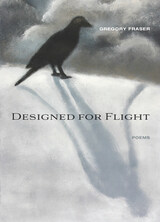
Designed for Flight both continues and enlarges the exploration of the rhythms of our emotional lives undertaken in Gregory Fraser’s first two collections. A master of metaphor, Fraser works magic within tightly controlled forms, loading lines with surprising juxtapositions and changes of direction. Taken together, the poems trace the sometimes instant, sometimes decades-long movement from incomprehensible loss and grief to rueful reflection and, if we’re lucky, uneasy accommodation. Casting a sharply observant eye on past selves, always steering clear of simple sentiment, the speaker in this collection looks back with bitter irony and forgiveness in equal measure. Against the fears and frustrations of childhood, the dissolution of a doomed relationship, and the distance between the hoped for and the actual, Fraser’s poems offer the imagination’s capacity for endless invention and the compensatory pleasures of art.
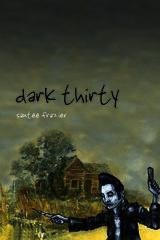
Dark Thirty takes us on a loosely autobiographical trip through Cherokee country, the backwoods towns and the big cities, giving us clear-eyed portraits of Native people surviving contemporary America. In Frazier’s world, there is no romanticizing of Native American life. Here cops knock on the door of a low-rent apartment after a neighbor has been stabbed. Here a poem’s narrator recalls firing a .38 pistol—“barrel glowing like oil in a gutter-puddle”—for the first time. Here a young man catches a Greyhound bus to Flagstaff after his ex-girlfriend tells him he has fathered a child. Yet even in the midst of violence and despair there is time for the beauty of the world to shine through: “The Cutlass rattling out / the last fumes of gas, engine stops, / the night dimly lit by the moon / hung over the treetops; / owls calling each other from / hilltop to valley bend.”
Like viewing photographs that repel us even as they draw us in, we are pulled into these poems. We’re compelled to turn the page and read the next poem. And the next. And each poem rewards us with a world freshly seen and remade for us of sound and image and voice.
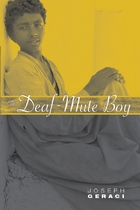
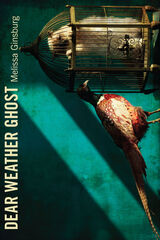
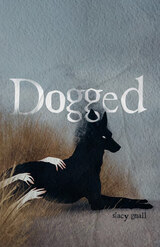
Looking to a wide range of high and low visual media, from Steven Spielberg’s Jaws and Animal Planet’s Fatal Attractions to Peter Paul Rubens’s painting of Hercules’s dog discovering Tyrian purple, Stacy Gnall ponders human-animal connections and divisions, exploring those moments when human voices blend with “silent” beasts to exceed the limits of language. In Dogged, animals emerge as the highest aspiration of poetry.
Around the bend it was reckoned
we would never grow old
because there were no words for it.
I placed my arms soft
around the neck of a fawn
and she felt no alarm. Speech
is where we went wrong.
(From “The Wood in Which Things Have No Name”)
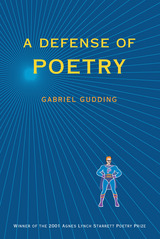
Runner-up, Society of Midland Authors 2002 Poetry Prize
Gabriel Gudding’s poems not only defend against the pretense and vanity of war, violence, and religion, but also against the vanity of poetry itself. These poems sometimes nestle in the lowest regions of the body, and depict invective, donnybrooks, chase scenes, and the abuse of animals, as well as the indignities and bumblings of the besotted, the lustful, the annoyed, and the stupid.
In short, Gudding seeks to reclaim the lowbrow. Dangerous, edgy, and dark, this is an innovative writer unafraid to attack the unremitting high seriousness of so much poetry, laughing with his readers as he twists the elegiac lyric "I" into a pompous little clown.
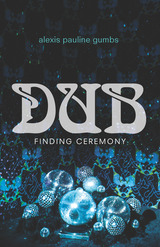
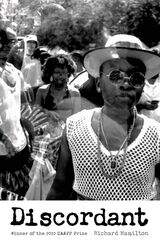
Richard Hamilton’s second poetry collection, Discordant, is a searing examination of injustice both within the United States and abroad, from criticisms of the US military-industrial complex and failing healthcare system to multilayered observations of marginalization through the lenses of race, class, gender, and sexuality. Hamilton’s poems look closely at increased austerity measures, commitment to mass incarceration and private prisons, disdain for workers and labor resistance, the expansion of the US military budget, the disappearance of federal subsidies for the working poor, failing schools and teacher shortages, market inflation and price gouging, and the rising tide of right-wing fascism.
Hamilton’s lyrical writing brings together free-form essays and personal narratives full of keen-eyed and urgent observations. Told from the perspective of a speaker who is unemployed and pensive, Hamilton shows how history haunts us while keeping the present in the foreground, constantly challenging oppression that has long been commonplace.
Discordant won the 2022 CAAPP Book Prize, selected by Evie Shockley.
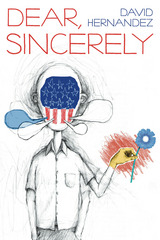
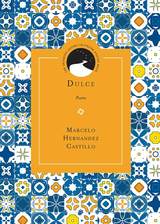
The poems in Dulce are at once confession and elegy that admit the speaker’s attempt and possible failure to reconcile intimacy toward another and toward the self. The collection asks: what’s the point in any of this?—meaning, what’s the use of longing beyond pleasure; what’s the use of looking for an origin if we already know the ending?
Surreal and deeply imagistic, the poems map a parallel between the landscape of the border and the landscape of sexuality. Marcelo Hernandez Castillo invites the reader to confront and challenge the distinctions of borders and categories, and in doing so, he obscures and negates such divisions. He allows for the possibility of an and in a world of either/or.
These poems enact a prescient anxiety of what is to come, “I want to say all of this is true / but we both know it isn’t. . . . We already know what’s at the other end of this.” Dulce is truly a lyrical force rife with the rich language of longing and regret that disturbs even the most serene quiet.
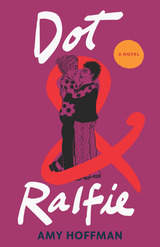
Dot is caring but hides hurtful secrets. Ralfie’s gruffness masks the physical and emotional pain she endures. Friends and relatives don’t necessarily offer appealing role models for their third act. Dot’s sister Susan is pushing them toward a stuffy “55 or better” community out in the ’burbs, populated by aging straights who mistake the butch Ralfie for a frumpy old man. Eighty-year-old Viola—Dot’s friend and sometime lover—lives alone and refuses help, even as she experiences a devastating fall. Rife with Hoffman’s characteristic wit, Dot & Ralfie takes a hard, sometimes painful look at elder care in the LGBTQ+ community, and the unique struggles that come with getting older outside of heteronormative structures.
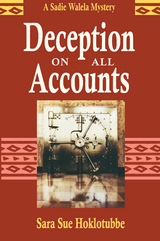
Sadie Walela's life is about to be turned upside down.
One morning Sadie unlocks the door at the Mercury Savings Bank and confronts a robber who's been lying in wait for her and her fellow employees. He flees after stealing money and killing her coworker. When a whirlwind of events leaves Sadie herself under suspicion, she sets out to clear her name.
This banker turned sleuth is suddenly plunged into an unfamiliar world in which people are not always as they appear-not her employer, not the homeless man she's befriended, not the police officer who takes an interest in the case, not the man she falls in love with. And, as she's beginning to imagine, not even herself.
Sadie is a blue-eyed Cherokee living in northeastern Oklahoma, a half-blood who finds she sometimes has to adapt to get by in the white man's world, much as her father's ancestors did. In this story of robbery, murder, love, and intrigue, she faces adversity at each bend in the road, but in the tradition of her people she adapts and moves forward—even if it means having to re-think her relationships and expectations.
Set against the backdrop of small-town Oklahoma and its Native culture, Deception on All Accounts draws readers into the real lives of contemporary American Indians as it shines a light on violence, corporate corruption, and prejudice in modern America. As Sadie Walela comes to terms with murder, romance, and her hopes for a career, she finds deception on all accounts.
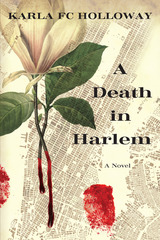
In A Death in Harlem, famed scholar Karla FC Holloway weaves a mystery in the bon vivant world of the Harlem Renaissance. Taking as her point of departure the tantalizingly ambiguous “death by misadventure” at the climax of Nella Larsen’s Passing, Holloway accompanies readers to the sunlit boulevards and shaded sidestreets of Jazz Age New York. A murder there will test the mettle, resourcefulness, and intuition of Harlem’s first “colored” policeman, Weldon Haynie Thomas.
Clear glass towers rising in Manhattan belie a city where people are often not what they seem. For some here, identity is a performance of passing—passing for another race, for another class, for someone safe to trust. Thomas’s investigation illuminates the societies and secret societies, the intricate code of manners, the world of letters, and the broad social currents of 1920s Harlem.
A Death in Harlem is an exquisitely crafted, briskly paced, and impeccably stylish journey back to a time still remembered as a peak of American glamour. It introduces Holloway as a fresh voice in storytelling, and Weldon Haynie Thomas as an endearing and unforgettable detective.
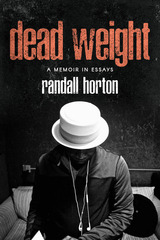
The memoir begins with a conversation between Horton and Ralph Ellison’s Invisible Man statue in New York City. Their imagined dialogue examines the psychological impact of racism on Black men and boys, including Horton’s separation from his mother, immediately after his birth, in a segregated Alabama hospital. From his current life as a professor and prison reformer, Horton looks back on his experiences as a drug smuggler and trafficker during the 1980s–1990s as well as the many obstacles he faced after his release. He also examines the lasting impact of his drug activity on those around him, reflecting on the allure of economic freedom and the mental escapism that cocaine provided, an allure so strong that both sellers and users were willing to risk prison. Horton shares historical context and vivid details about people caught in the war on drugs who became unsuspecting protagonists in somebody else’s melodrama.
Lyrical and gripping, Dead Weight reveals the lifelong effects of one man’s incarceration on his psyche, his memories, and his daily experience of American society.
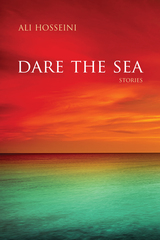
The stories in Dare the Sea explore Iran’s landscape, culture, and the undercurrent of change affecting its people—both in Iran and the United States. The stories in the first half of the collection are set in Iran in the time before and just after the Iranian Revolution of 1979. Each tale discloses the obstacles rural Iranians lived with on a daily basis and the exigencies of survival: petty theft, corruption, drug trafficking, religion, and love. Stories in the second half take place in exile, where characters are seemingly dropped into American locales like the Midwest or Hawaii, taking in their situation with only the survival skills they’ve learned in their own land and enduring the hardships of being strangers in a new country.
Loosely interconnected by reappearing characters, the stories in Dare the Sea are strongly linked by the country of Iran, its landscape, its history, and its hold on its people.
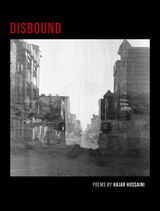

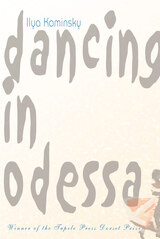
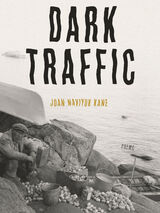
Dark Traffic creates landmarks through language, by which its speakers begin to describe traumas in order to survive and move through them. With fine detail and observation, these poems work in some way like poetic weirs: readers of Kane’s work will see the artic and subarctic, but also, more broadly, America, and the exigencies of motherhood, indigenous experience, feminism, and climate crises alongside the near-necropastoral of misogyny, violence, and systemic failures. These contexts catch the voice of the poems’ speakers, and we perceive the currents they create.
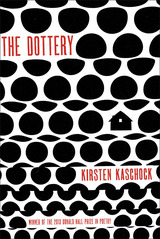
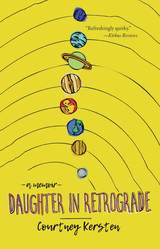
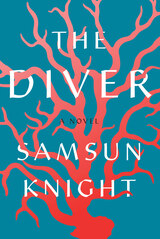
Peter is a young paralegal at the firm hired to investigate Marta’s role in her husband’s death, who is grappling with the recent suicide of his brother and the subsequent distance that seems to have opened between himself and the rest of the world. After learning about Marta’s case, he finds himself haunted by her story and enthralled by her. On an outing to interview her neighbors, he instead warns her that a company of private detectives is preparing to make trouble. Marta slams the door on him, but later sets up a time to hear him out. Neither Marta nor Peter could predict the consequences of their meeting.
A genre-bending story of heartache and devotion that questions where the boundaries begin and end in our closest relationships, The Diver explores the risks and rewards of intimacy, and offers a portrait of love as a catastrophic event.
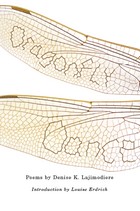
Dragonfly Dance is a collection of poems remarkable for their candor and sense of catharsis. Writing from the vantage point of an American Indian women, Denise Lajimodiere opens a door into the lives of Native girls and women. Her poems often reflect the deep tensions between Native culture and white culture.
Reflected in Lajimodiere's poems, life is sometimes beautiful but rarely easy. "The Necklace," the narrator details how her mother repaired a favorite beaded necklace, "her arthritic fingers patiently / threading beads / on the long thin needle, weaving / night after night." When the necklace is finally repaired, she wears it to school where
At recess a White boy
ran by, yanked
it off my neck and threw it.
I watched as it ascended
high above the blacktop,
the beads glittered, scattering their light,
a rainbow against gray skies.
Unadorned, direct, and often raw, these riveting poems sear their way into our imaginations, inviting us into a world we might never have known. We are richer for the knowledge.
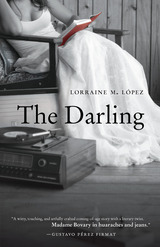
Though set in Los Angeles from the mid-1970s to the mid-1980s, the narrative reinscribes Anton Chekhov’s short story, “The Darling,” first published in 1899. Like Chekhov’s protagonist, Caridad engages in various relationships in her search for love and fulfillment. Rather than absorbing beliefs held by the men in her life, as does Chekhov’s heroine, Caridad instead draws on her lovers’ resources in attempting to improve and educate herself. Apart from Chekhov, various authors of classic literature further guide Caridad’s quest to find herself and to find love, inspiring her longing for love, while also enabling her to disentangle herself from unsatisfying to disastrous relationships by encouraging her to strive for an ideal.
In a moment of clarity, Caridad compares herself to a trapeze artist near the top of a striped tent as she flies from one man to the next, expecting to be caught and held until she is ready to leap again. Flying, she wonders—or is she falling?
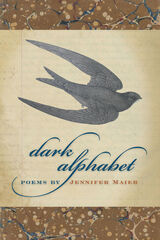
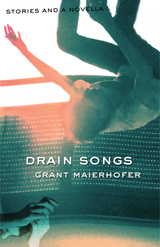
Drain Songs gathers five stories and a novella focused on the many trials of modern life—addiction and depression, mania and disorder, attempts and failure at keeping the worst at bay. Grant Maierhofer’s stories focus on characters in varying states of disarray and stuckness, continuing his literary project of analyzing lives on the fringes of sanity and society. The novella “Drain Songs” is a harrowing narrative focused squarely on addiction and recovery, twelve-step programs, and codependency.
In all of these tales, Maierhofer takes a bee’s-eye view of protagonists from all walks of life, from the working class to the academy, from janitors to professors, embodying the commonalities of men and women struggling with very fundamental elements of survival, perspective, and identity—attempts formal and informal to contend with the trials that forever engage and perplex humanity.
His evocative prose conveys both despair and resignation as well as stultifying, brain-deadening routine and repetition. Still, these stories transcend angst and tilt toward agony and ecstasy and the hope of redemption.
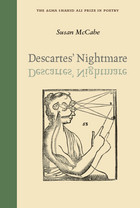
Descartes’ Nightmare is the 2007 prizewinning volume selected by this year’s judge, Cole Swenson, of the Iowa Writers’ Workshop.
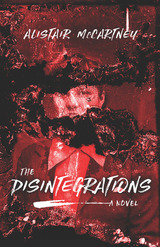
Within this dizzying investigation into the mystery of death is another mystery: who is the companion igniting these memories? This enigmatic novel blurs the line between fiction and nonfiction, story and eulogy, poetry and obituary. Wry yet somber, astringent yet tender, The Disintegrations confronts both the impossibility of understanding death and the timeless longing for immortality.
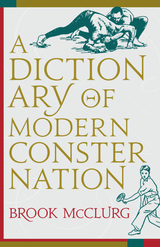
A Dictionary of Modern Consternation is a genre-bending nonfiction lyric following one family through the years from the financial crisis to the COVID-19 pandemic. In this cheeky dictionary-shaped exploration of how language can often alienate and dehumanize, weakening feelings of community with societal trends that subsume individual lives, Brook McClurg offers a footnote narrative of an international life pursuing the business of words.
What starts as a lighthearted academic exploration becomes real when the pandemic hits—at the letter P—and the ability to treat each other humanely suddenly has grave consequences. Questioning the ways specialized jargon in language—often corporate, legal, and militaristic in nature—encroaches on our feelings of community and responsibility to one another, McClurg employs an abecedarian format, concealing his meaningful and sensitive explorations of personal strife inside a more formal facade. A Dictionary of Modern Consternation reveals its subjective viewpoint and ironic tone over the course of the text, confronting themes of loneliness and isolation, global strife and endless war, and intimacy, love, and family.
With approximately 500 satirical dictionary entries and 143 flash essays as footnotes, this experimental memoir is filled with satirical definitions, pseudo-aphorisms, and inquisitions into words or phrases. A Dictionary of Modern Consternation is for general readers, collectors, book-as-art lovers, and anyone interested in the political economy of language, as well as graduate classes exploring experimental forms.
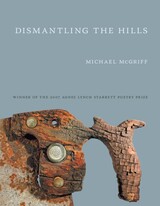
WINNER OF THE 2007 AGNES LYNCH STARRETT POETRY PRIZE
Dismantling the Hills is a testament to working-class, rural American life. In a world of machinists, loggers, mill workers, and hairdressers, the poems collected here bear witness to a landscape, an industry, and a people teetering on the edge of ruin. From tightly constructed narratives to expansive and surreal meditations, the various styles in this book not only reflect the poet's range, but his willingness to delve into his obsessions from countless angles Full of despair yet never self-loathing, full of praise yet never nostalgic, Dismantling the Hills is both ode and elegy. McGriff's vision of blue-collar life is one of complication and contradiction, and the poems he makes are authentic, unwavering, and unapologetically American.
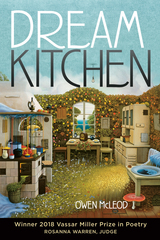
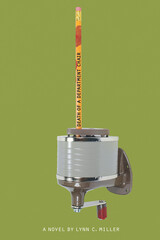
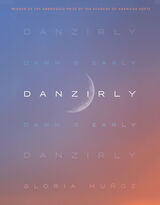
Danzirly does not shy away from confronting traditional gender roles, religion, and anxieties surrounding climate change and the digital age. Gloria Muñoz addresses Latinx stereotypes and powerfully dismantles them in poetic form, juxtaposing the promised wonders of a life in America with the harsh realities that immigrants face as they build their lives and raise their families here. Winner of the Academy of American Poets’ Ambroggio Prize, this collection of poems is an unforgettable reckoning of the grief and beauty that pulses through twenty-first-century America.
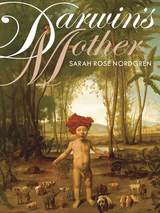
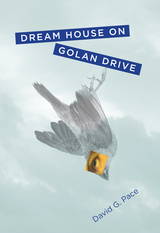
It is the year 1972, and Riley Hartley finds that he, his family, community, and his faith are entirely indistinguishable from each other. He is eleven. A young woman named Lucy claims God has revealed to her that she is to live with Riley’s family. Her quirks are strangely disarming, her relentless questioning of their life incendiary and sometimes comical. Her way of taking religious practice to its logical conclusion leaves a strong impact on her hosts and propels Riley outside his observable universe toward a trajectory of self-discovery.
Set in Provo and New York City during the seventies and eighties, the story encapsulates the normal expectations of a Mormon experience and turns them on their head. The style, too, is innovative in how it employs as narrator “Zed,” one of the apocryphal Three Nephites who, with another immortal figure, the Wandering Jew of post-biblical legend, engage regularly in light-hearted banter and running commentary, animating the story and leavening the heartache with humor and tenderness.
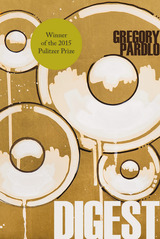
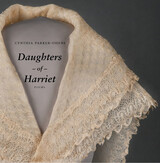
Finalist, 2022 Foreword INDIES for Poetry
Finalist, 2022 Golden Poppy Award for Poetry
Finalist, 2022 San Francisco/Nomadic Literary Award for Poetry
Drawing inspiration from the life of Harriet Tubman, Cynthia Parker-Ohene’s poetic narratives follow a historical arc of consciousness of Black folks: mislaid in potters’ fields and catalogued with other misbegotten souls, now unsettled as the unknown Black denominator. Who loved them? Who turned them away? Who dismembered their souls? In death, they are the institutionalized marked Black bodies assigned to parcels, scourged beneath plastic sheets identified as a number among Harriets as black, marked bodies. These poems speak to how the warehousing of enslaved and somewhat free beings belies their humanity through past performances in reformatories, workhouses, and hospitals for the negro insane. To whom did their Black lives belong? How are Black grrls socialized within the family to be out in the world? What is the beingness of Black women? How have the Harriets—the descended daughters of Harriet Tubman—confronted issues of caste and multiple oppressions? These poems give voice to the unspeakable, the unreachable, the multiple Black selves waiting to become.
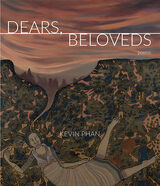
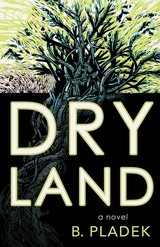
While at camp, Rand also realizes the true price of his gift: everything he grows withers and dies, leaving the soil empty of all living matter. Horrified, he throws himself into ever more self-destructive trials, buckling under the pressure of so many secrets. In order to survive, he must confront the terrifying possibility that his gift is actually a curse, upending everything he believes about nature, love, and himself.
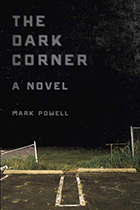
—Ron Rash, author of Serena and The Cove
"The Dark Corner is one of the most riveting and beautifully written novels that I have ever read. Trouble drives the story, as it does in all great fiction, but grace, that feeling of mercy that all men hunger for, is the ultimate subject, and that's just part of the reason that Mark Powell is one of America's most brilliant writers."
—Donald Ray Pollock, author of The Devil All the Time and Knockemstiff
“Mark Powell’s third novel powerfully tackles the ongoing curses of drugs, real estate development, veterans’ plights, and other regional cultural banes that plague an Appalachia still very much alive and with us as its own chameleon-like animal. Brimming with fury and beauty, The Dark Corner is a thing wrought to be feared and admired.”
—Casey Clabough, author of Confederado
“Powell’s work is so clearly sourced to the wellspring of all spiritual understanding—this physical world…He is heir to the literary lineage of Melville, Conrad, Flannery O’Connor, Denis Johnson, and Robert Stone.”
—Pete Duval, author of Rear View
A troubled Episcopal priest and would-be activist, Malcolm Walker has failed twice over—first in an effort to shock his New England congregants out of their complacency and second in an attempt at suicide. Discharged from the hospital and haunted by images of the Iraq War and Abu Ghraib, he heads home to the mountains of northwestern South Carolina, the state’s “dark corner,” where a gathering storm of private grief and public rage awaits him.
Malcolm’s life soon converges with people as damaged in their own ways as he is: his older brother, Dallas, a onetime college football star who has made a comfortable living in real-estate development but is now being drawn ever more deeply into an extremist militia; his dying father, Elijah, still plagued by traumatic memories of Vietnam and the death of his wife; and Jordan Taylor, a young, drug-addicted woman who is being ruthlessly exploited by Dallas’s viperous business partner, Leighton Clatter. As Malcolm tries to restart his life, he enters into a relationship with Jordan that offers both of them fleeting glimpses of heaven, even as hellish realities continue to threaten them.
In The Dark Corner, Mark Powell confronts crucial issues currently shaping our culture: environmentalism and the disappearance of wild places, the crippling effects of wars past and present, drug abuse, and the rise of right-wing paranoia. With his skillful plotting, feel for place, and gift for creating complex and compelling characters, Powell evokes a world as vivid and immediate as the latest news cycle, while at the same time he offers a nuanced reflection on timeless themes of violence, longing, redemption, faith, and love.
MARK POWELL is the author of two previous novels published by the University of Tennessee Press, Prodigals and the Peter Taylor Prize–winning Blood Kin. The recipient of National Endowment for the Arts and Breadloaf Writers’ Conference fellowships, as well as the Chaffin Award for fiction, he is an assistant professor of English at Stetson University.

Cambridge, MA, 2008
Midsummer. Finally, you are used to disappointment.
A baby touches phlox. Many failures, many botched attempts,
A little success in unexpected forms. This is how the rest will go:
The gravel raked, bricks ashen, bees fattened–honey not for babes.
All at once, a rustling, whole trees in shudder, clouds pulled
Westward. You are neither here nor there, neither right nor
Wrong. The world is indifferent, tired of your insistence.
Garter snakes swallow frogs. The earthworms coil.
On your fingers, the residue of red pistils. What have you made?
What have you kept alive? Green, a secret, occult,
Grass veining the hands. Someone’s baby toddling.
And the phlox white. For now. Midsummer.
A remarkable first book, Disorder tells the story, by turns poignant and outrageous, of a family’s dislocation over four continents during the course of a hundred years. In short lyrics and longer narrative poems, Vanesha Pravin takes readers on a kaleidoscopic trek, from Bombay to Uganda, from England to Massachusetts and North Carolina, tracing the path of familial love, obsession, and the passage of time as filtered through the perceptions of family members and a host of supporting characters, including ubiquitous paparazzi, amorous vicars, and a dubious polygamist. We experience throughout a speaker forged by a deep awareness of intergenerational, multicontinental consciousness. At once global and personal, crossing ethnic, linguistic, and national boundaries in ways that few books of poetry do, Disorder bristles with quiet authority backed by a skeptical intelligence.
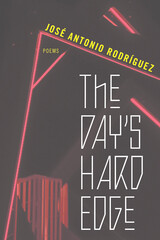
In his fourth poetry collection, José Antonio Rodríguez investigates how one constructs a relationship to the self, to community, and to poetry itself. The Day's Hard Edge is composed of three sections, the first of which situates the reader in the speaker’s world, one marked by multiple forms of trauma. Here are the contours of the Texas/Mexico borderlands where the speaker’s initial sense of self and community emerges. The second section broadens in scope and considers the potential and limitations of poetry as a site for meaning-making. The third section brings the speaker to a new understanding of the poem as it relates to the transformative and destabilizing experience of trauma. Ultimately this book lays bare an individual and, in doing so, shows how poetry acts as a place of succor and vulnerability for one’s very identity. Together these poems explore what it means to be queer, immigrant, and Chicano.
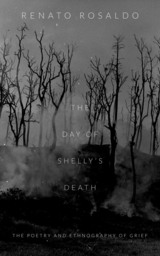
READERS
Browse our collection.
PUBLISHERS
See BiblioVault's publisher services.
STUDENT SERVICES
Files for college accessibility offices.
UChicago Accessibility Resources
home | accessibility | search | about | contact us
BiblioVault ® 2001 - 2024
The University of Chicago Press









